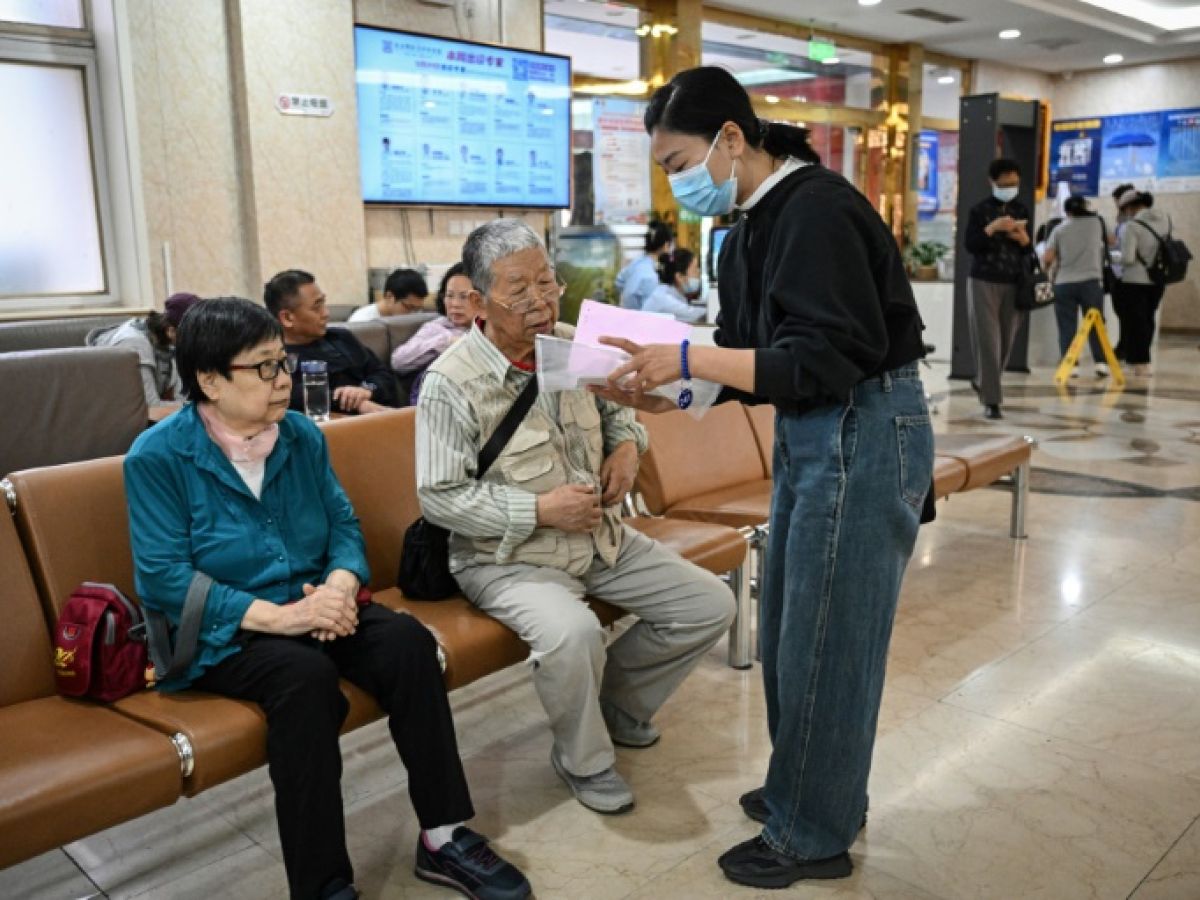In a crowded Beijing hospital, 83-year-old Tian Yigui hands his wife's medical documents to a professional escort, tasked with guiding them through the sometimes labyrinthine Chinese hospital system.
Private medical practices are rare in China, so even for minor ailments, the overwhelming majority of Chinese people go to hospitals, where doctors work.
The uneven quality of healthcare facilities and staff pushes patients, especially from rural areas, to the best facilities in larger cities.

But they are huge, very busy and noisy, and often exhausting.
This situation has given rise to the profession of "medical escort", which is booming in China, where the sector of on-demand services, bookable online, is much more developed than in the West.
"Beijing hospitals are very complex," says Tian Yigui, 83.
"You have to constantly go up and down floors, wait for elevators, stand in line... It's exhausting," he says.

As in other hospitals, patients face long queues, multiple admission formalities and multiple payments to make.
Documents in hand, Meng Jia, the escort of Mr. Tian and his wife Gao Yingmin, deftly goes through the steps before joining them in the consultation room.
She then goes with her husband to the payment counter and explains to the couple how to collect the medication prescribed by the doctor.
– “It reassures us” –
Four hours of support generally costs around 300 yuan (36 euros).

A justified investment for Ms. Gao, 78, who is being monitored for complications after throat surgery.
"It's practical, effective and reassuring," she says, speaking with difficulty because of her breathing cannula.
"We don't have to worry anymore" because "they do everything for us," she emphasizes.
There is a plethora of medical escorts available on the internet.
Meng Jia, 39, said she had no medical training before signing up for a week-long training course run by Chengyi Health, an online platform that connects patients and caregivers.
Its founder, Li Gang, a former anesthesiologist, points out that large hospitals can have more than 50 departments and that many people "don't know how to get a consultation."

While some expectant mothers use her services, the majority of her clients are 60 years old or older.
Tao Yuan, 24, who is training to become a medical escort, says he left his job at an internet company for a career "that has more value than money."
The one-child policy, which lasted until 2015, condemned many Chinese, especially those now in their 30s and 40s, to having no brothers or sisters. They are therefore forced to care for their aging parents alone.
– Growing demand –
There is therefore "a real need" for support services, underlines Tao Yuan.

The health system is struggling to address regional disparities and unequal access to care.
"It's a recurring structural problem," says Wang Feng, an expert on Chinese demography at the University of California, Irvine.
Working people often don't have time to take their parents to the hospital.
China will therefore "have a growing demand (...) for personal care" with the growing proportion of seniors in its population, explains Wang Feng.
To boost consumption, the authorities are banking heavily on the so-called "grey hair" economy, products and services aimed at seniors.
The sector was worth 7 trillion yuan (847 billion euros) last year, according to the China Association for Social Welfare and Elderly Services.

A freelance escort, Xiao Shu (pseudonym), 36, says he earns around 10,000 yuan (1,200 euros) a month – an average salary in Beijing.
But he highlights the limitations of the service.
Xiao Shu refused to accompany a man of nearly 90 years old to a post-operative consultation, considering the mission too risky given the patient's condition.
"Who would have been responsible if something went wrong?" he says.
